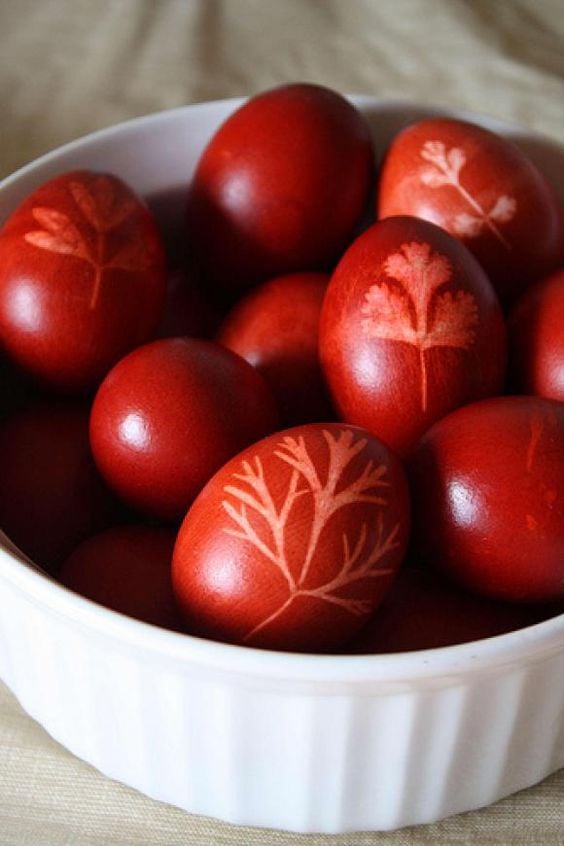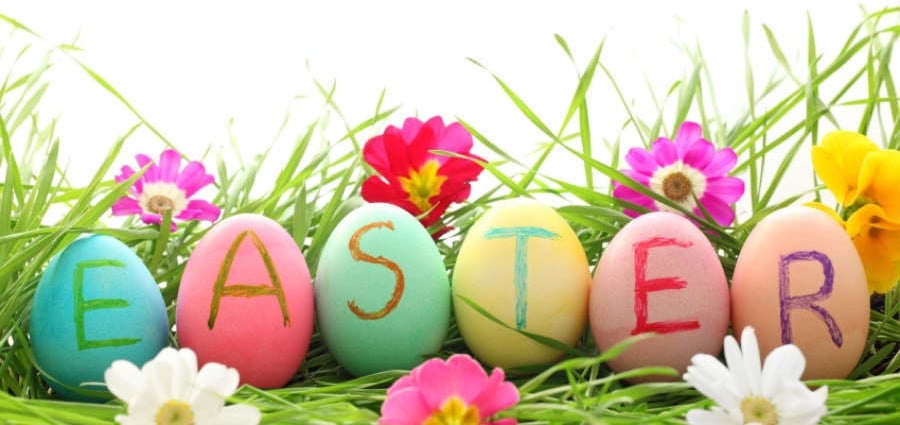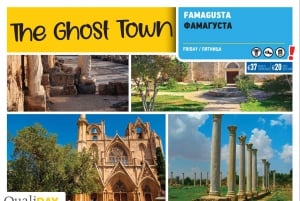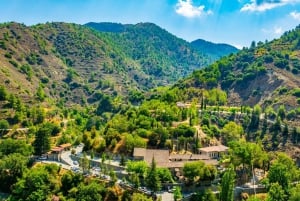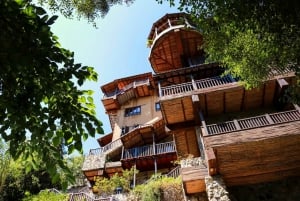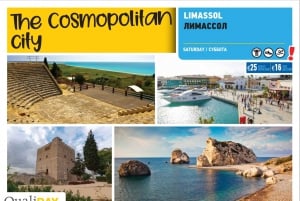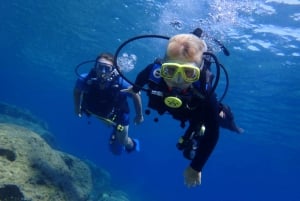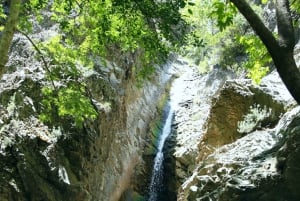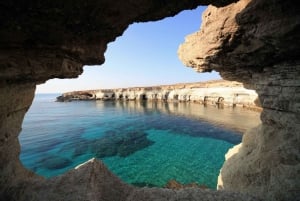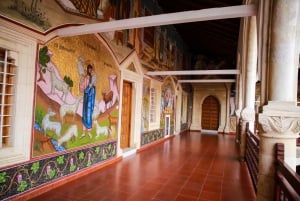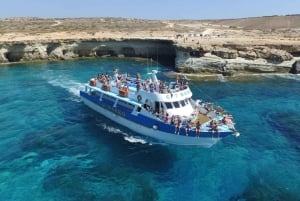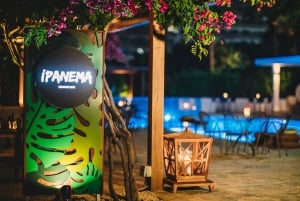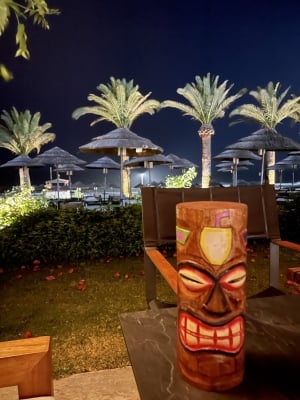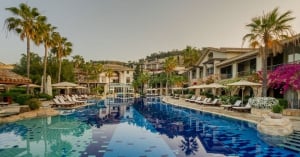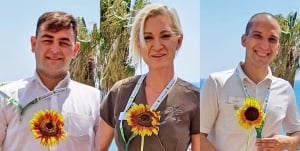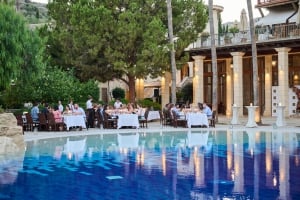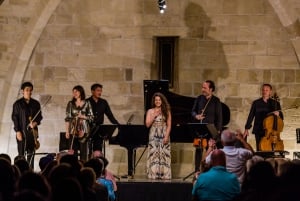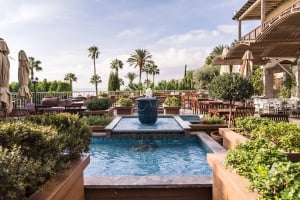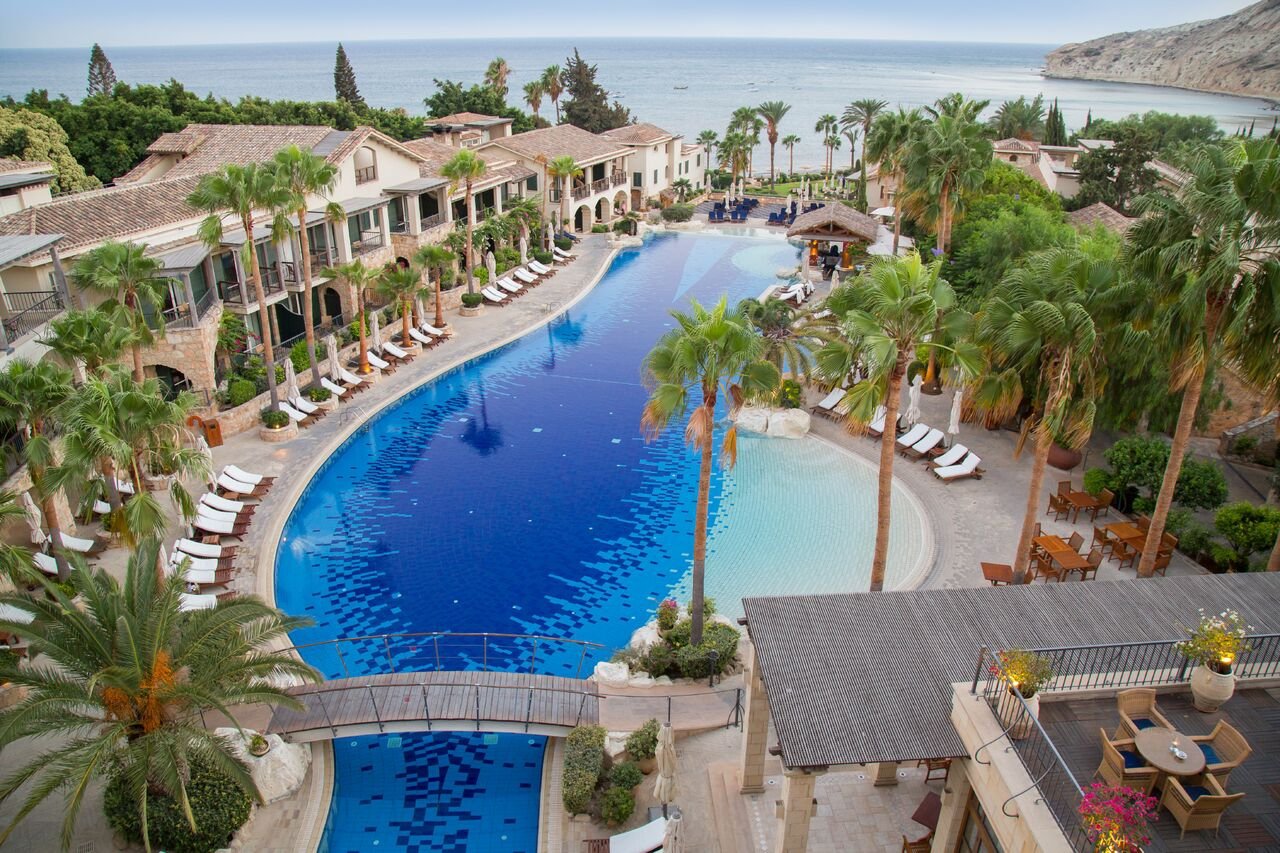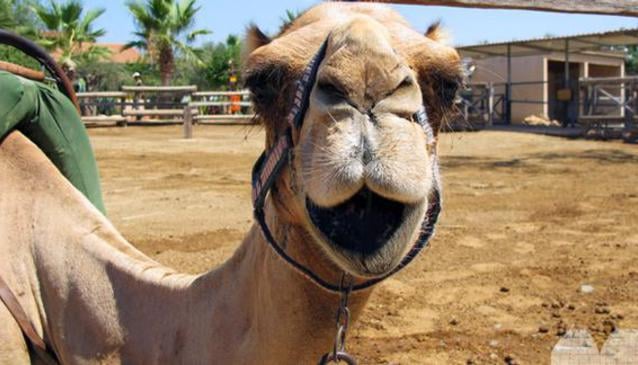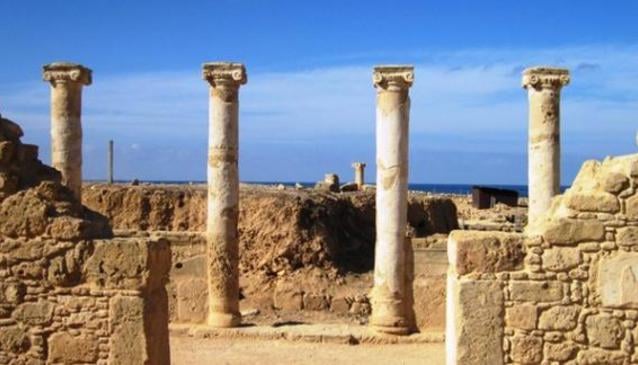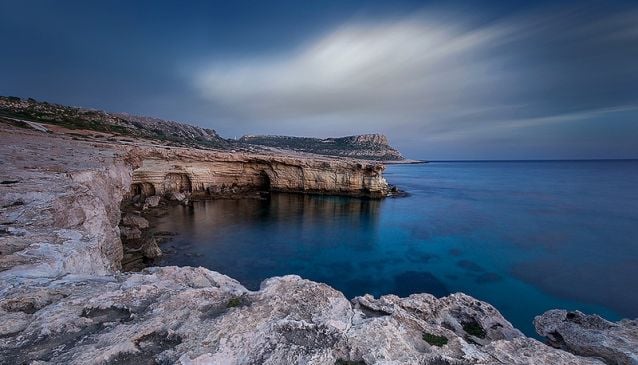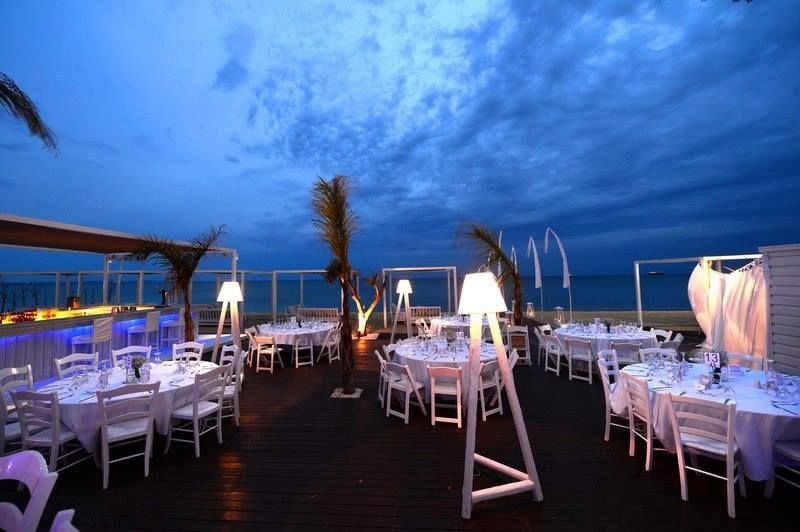'Kalo Pascha' - Happy Easter in Cyprus!
Easter in Cyprus is lots of fun, as Cypriots warmly welcome everyone to join in...
Book Top Experiences and Tours in Cyprus:
If youʻre booking your trip to Cyprus last minute, we have you covered. Below are some of the top tours and experiences!- From Nicosia: Kykkos & Kalopanayiotis Full-Day Guided Tour
- From Paphos: Troodos-Venetian Bridge-Millomeris Waterfall
- From Paphos: Troodos, Kykkos Monastery, and Winery Day Trip
- Paphos: Choirokitia & Famagusta Guided Tour with Transfers
- UK/Europe: eSim Mobile Data Plan
What better time to be in than at Easter? The spring sunshine transforms the countryside almost overnight as fields, hedgerows and meadows burst into flower with poppies, golden daisies and carpets of anemones that herald the arrival of Easter - the most important festival in the Orthodox calendar (this year Friday 06 - Sunday 08 April).
Easter in Cyprus is lots of fun, as Cypriots warmly welcome strangers to join in the fun as it is the largest festival in the Greek Orthodox calendar. Easter days are very special... Religion meets Easter tradition and everyone is anxious to share these holy and special days with family and friends.
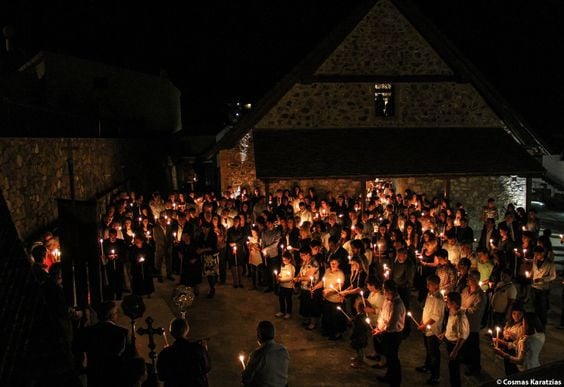 Preparations for Easter begin in earnest fifty days before Easter with the public holiday of Green Monday, when families head for the countryside with baskets laden with a vegetarian-style picnic as this day marks the start of the seven week Lenten fast (which excludes all meat and animal products) which is still observed by all ages as everyone prepares spiritually for Easter. Throughout Lent, there is a special service in all the churches every Friday afternoon at sunset called Heritsimi, which is held for women in honour of Our Lady. Part of a special thanksgiving anthem to Our Lady is sung each week and on Good Friday local schoolchildren join the women to sing the whole anthem.
Preparations for Easter begin in earnest fifty days before Easter with the public holiday of Green Monday, when families head for the countryside with baskets laden with a vegetarian-style picnic as this day marks the start of the seven week Lenten fast (which excludes all meat and animal products) which is still observed by all ages as everyone prepares spiritually for Easter. Throughout Lent, there is a special service in all the churches every Friday afternoon at sunset called Heritsimi, which is held for women in honour of Our Lady. Part of a special thanksgiving anthem to Our Lady is sung each week and on Good Friday local schoolchildren join the women to sing the whole anthem.
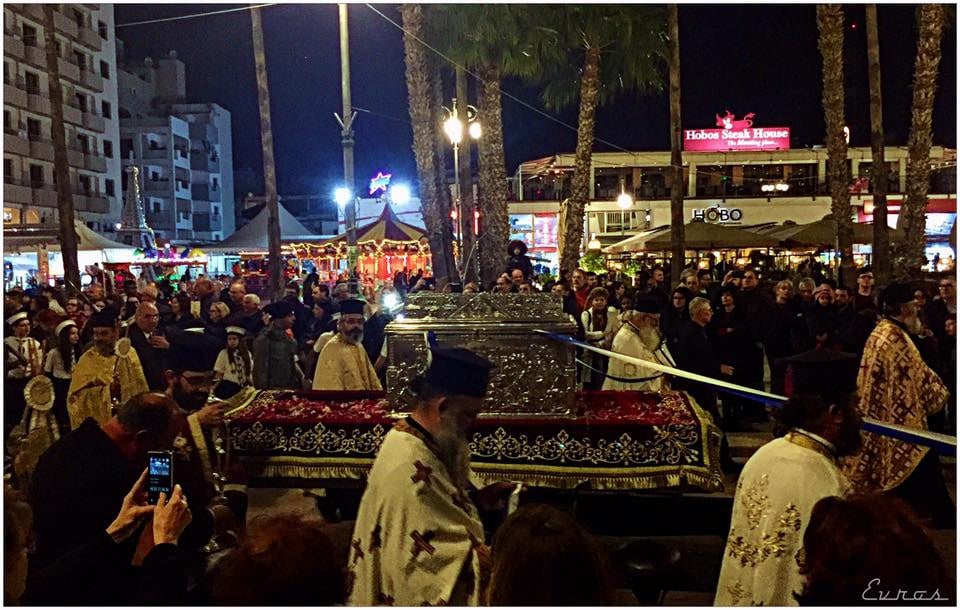
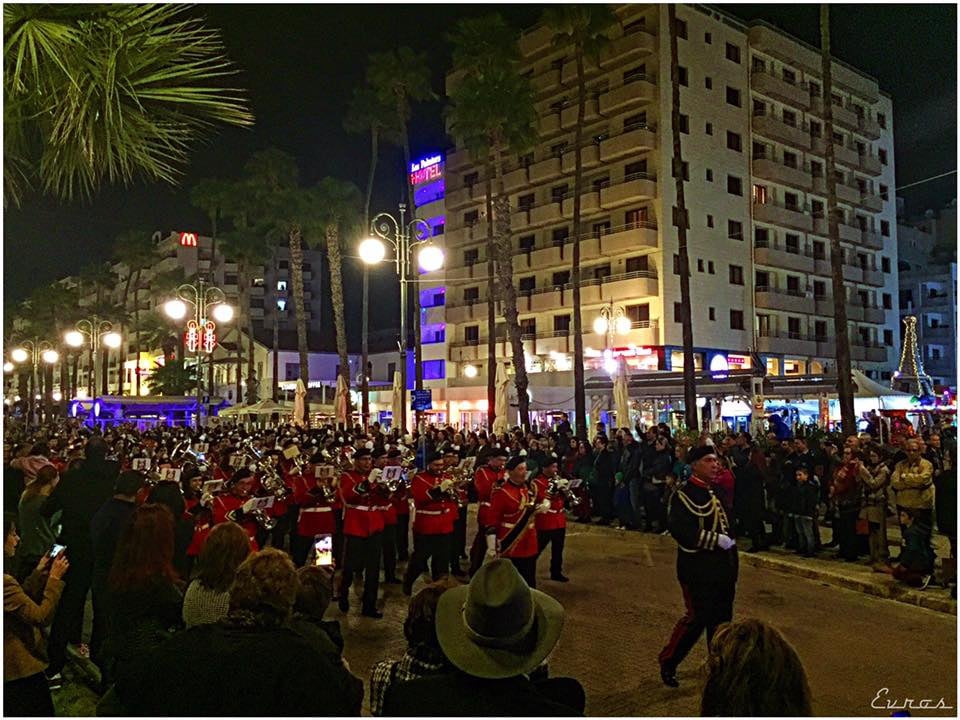
On Palm Sunday, housewives everywhere make little holders from palm leaves for their children to take to church filled with wild flowers. During the service the priest carries an icon of Christ around the boundaries of the church in commemoration of Christ's journey into Jerusalem. Many of the parishioners take fresh olive and palm leaves to Church in memory of Christâs journey into Jerusalem. The olive leaves are gathered and put in small embroidered bags after the service and the bags remain in the church for forty days, and are blessed by the Priest every day before being taken home by the parishioners to use as incense. Incense is believed to send evil and jealousy away from the family.
The week leading up to Easter - Holy Week - is incredibly sombre and sad and no one is in a celebration mood as they reflect on the final week of Christâs life. Services are held in the churches throughout each the day and each marks a solemn event such as the Last supper on Holy Thursday. The Lenten fast becomes even stricter, with both dairy products and olive oil omitted from the diet. During this week, housewives spring clean their homes and buy a new outfit of clothes and shoes for each family member as this is said to bring good luck. Eggs are hard-boiled and dyed scarlet and yellow, using rizani roots and golden daisies. In the towns the streets are decorated with Easter egg decorations and banners strung across the roads proclaiming Kalo Pascha- Christos Anesti (Happy Easter â Christ is risen). If you are in Kato Paphos, look for the three large crosses erected on the hill of Ayia Solomoni to remind passers by of the true meaning of Easter.
On Holy Thursday housewives complete their cooking and Flaounes are prepared by the score! These are traditional pastries filled with a special cheese. Each family has its own recipe, and whilst some flaounes are sweet, flavoured with raisins, others are savoury with mint. Flaounes are traditionally baked in the outdoor âbeehiveâ ovens. Flaounes are sold in every bakery and taste delicious served warm from the oven and thinly sliced.
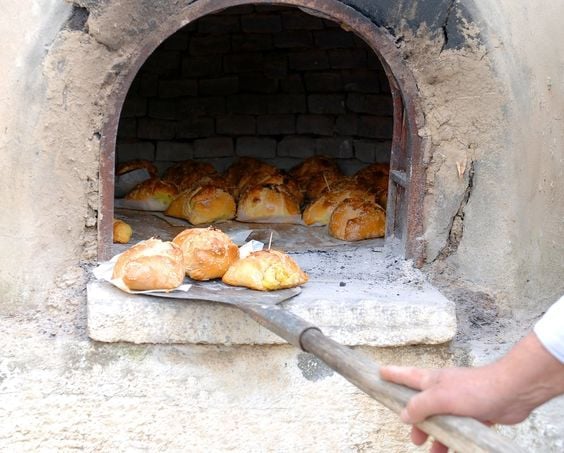 Good Friday is the holiest and most solemn day in Cyprus. Nobody does housework on this day, but instead all the ladies and girls head to church with armfuls of cream-coloured flowers to decorate the Epitaphios which is a special tabernacle containing an icon of Christ which symbolises the entombment. Visitors can pop into any church to see these beautiful decorations or to attend any of the services. At lunchtime, everyone eats Faki Xidati a bitter soup made with vinegar and lentils because when Christ asked for water he was given vinegar to drink. In the evening, as the sun sets, the priest leads a procession through the village and city with the Epitaphios accompanied by children carrying sparklers.
Good Friday is the holiest and most solemn day in Cyprus. Nobody does housework on this day, but instead all the ladies and girls head to church with armfuls of cream-coloured flowers to decorate the Epitaphios which is a special tabernacle containing an icon of Christ which symbolises the entombment. Visitors can pop into any church to see these beautiful decorations or to attend any of the services. At lunchtime, everyone eats Faki Xidati a bitter soup made with vinegar and lentils because when Christ asked for water he was given vinegar to drink. In the evening, as the sun sets, the priest leads a procession through the village and city with the Epitaphios accompanied by children carrying sparklers.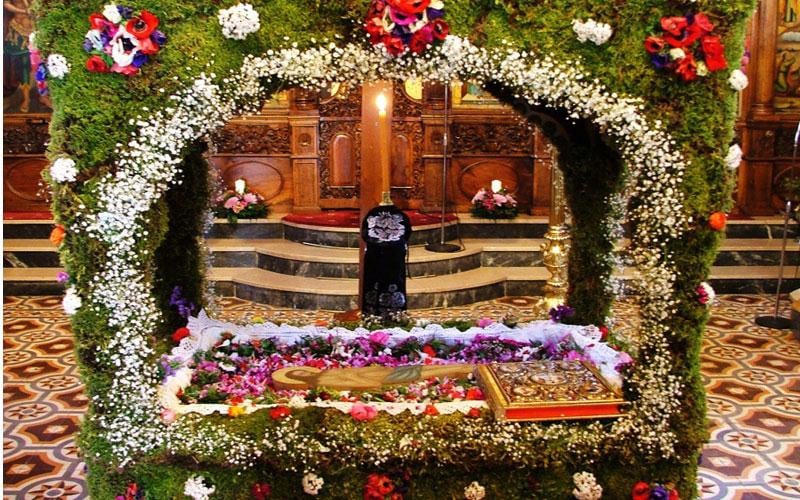
On Easter Saturday morning, people gather in the church for the 'First Ressurection'. Late on Easter Saturday night, everyone gathers at the church for the special midnight service - each carrying a special Easter candle that are widely available in supermarkets and kiosks throughout Lent. A large fire is lit outside in memory of the burning of Judas Iscariot and the youngsters often let off firecrackers. Inside the Easter service begins. At midnight the service reaches its climax. The church is plunged into darkness and as the priest lights a single candle he proclaims- Christos Anesti (Christ is risen) and the congregation joyfully replies -Alithos Anesti (truly he is risen). In turn, everyone in the congregation lights their candles from the priestâs candle and warmly embrace each other saying the priestâs proclamation. The service soon finishes and everyone walks home with their candles, to bless their homes with the holy light. Afterwards, the family gathers to enjoy a bowl of avgolemeno soup (made with egg, lemon and rice) together which marks the end of the fast.
On Easter Sunday morning a bit after 10:00, people go to church for the Prayer of Love. Later, all the family gathers for a celebration barbecue of lamb souvla (large pieces of lamb threaded on skewers) accompanied by salad, bread and dips and usually enjoyed outside in the warm spring sunshine. There is koulourakia to enjoy too which are Easter biscuits made with butter and flavoured with citrus and Tsoureki the sweet Easter bread flavoured with mahlepi and mastic. Presents are exchanged and children play with the dyed eggs in a similar game to English conkers. More and more relatives and friends arrive and are warmly embraced and greeted with the words Kalo Pascha â Happy Easter- and as the sun sets the music and dancing begins...
